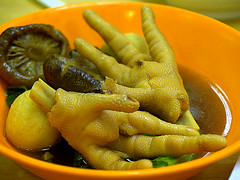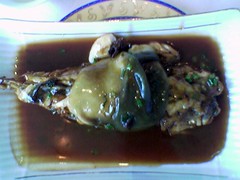By Jane Han Staff Reporter
Next to the calories and nutrition details on the side of a food package, you may soon be looking at the words ``China-Free,'' as the labeling movement that debuted in the U.S. is quietly trickling into the local food and beverage industries.
The move, which was first triggered in June by a Utah-based health food company for consumer awareness, has stirred controversy that it may promote racism. But a rising number of American businesses, consumers and interest groups are welcoming the labeling method as Chinese food and other imports have recently been headline news for their unacceptable health and safety standards.
An online poll by U.S. news channel MSBNC showed that 77 percent of 9,865 people said they were in favor of the ``China-Free'' labeling since an at-a-glance sticker tells shoppers what they need to know right away, while only 7.7 percent said they were against it.
And with many local food makers noticing a similar trend against China-derived ingredients, more are focusing on marketing and delivering ``China-Free'' products to consumers.
Haitai Beverage said its May-released black bean tea sold more than 9.5 million bottles over the past four months thanks to its premium quality homegrown beans.
``Top grade ingredients are what we value most because once you lose consumers' trust, it's hard to regain it,'' said Haitai spokesman Park Dong-soo, adding that at times, it means losing a big profit margin. ``Chinese beans are much cheaper, but we're still relying on 100 percent Korean because we know the public demands this.





No comments:
Post a Comment